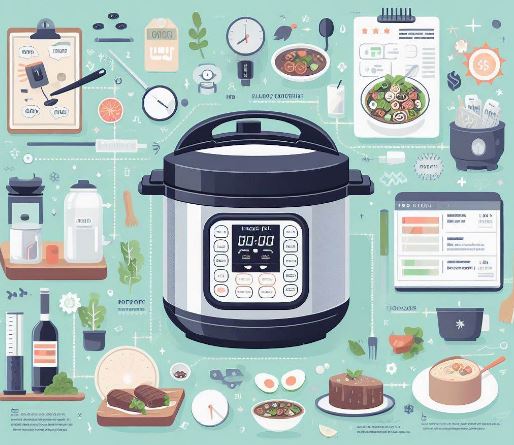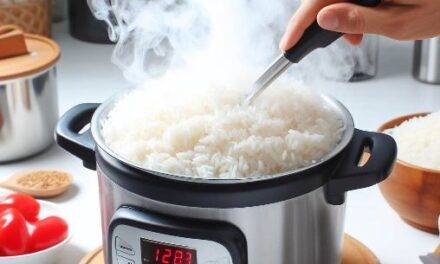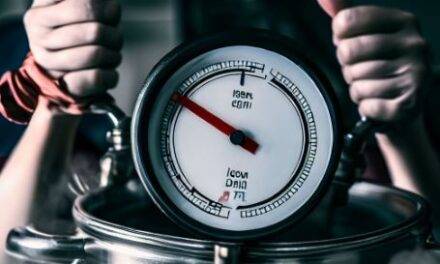Instant Pots have revolutionized the way we cook, offering convenience, speed, and versatility. However, many people wonder if these popular kitchen appliances consume a significant amount of electricity. In this article, we will delve into the topic to understand the electricity usage of Instant Pots and whether they indeed use a lot of electricity.
Introduction to Instant Pots
Instant Pots are multi-functional electric pressure cookers that have gained widespread popularity in recent years. They combine several kitchen appliances into one, allowing users to pressure cook, sauté, steam, slow cook, and more, all in a single device. The appeal of Instant Pots lies in their ability to significantly reduce cooking time while retaining flavor and nutrients.

Understanding Instant Pots
Understanding Instant Pots Instant Pots, also known as electric pressure cookers, combine multiple kitchen appliances into one. They can function as a pressure cooker, slow cooker, rice cooker, steamer, sauté pan, and even a yogurt maker. This multifunctionality has made them a staple in many households, saving time and energy compared to traditional cooking methods.
What is electricity consumption?
Electricity consumption refers to the amount of electrical energy consumed by an appliance or device over a specific period. It is typically measured in kilowatt-hours (kWh) and is a crucial factor to consider when assessing the operating costs of electrical devices.
Factors affecting electricity usage
Several factors influence the electricity consumption of appliances, including their wattage, usage frequency, and operating duration. Understanding these factors is essential for evaluating the energy efficiency of appliances like Instant Pots.
Energy Efficiency of Instant Pots
How Instant Pots work
Instant Pots operate by utilizing electricity to generate heat and build pressure within the cooking chamber. This pressure accelerates the cooking process, allowing food to cook faster than traditional methods.
Comparing energy usage with other cooking appliances
When compared to conventional cooking methods such as stovetop cooking or oven baking, Instant Pots are generally more energy-efficient. Their sealed design prevents heat loss and reduces cooking time, resulting in lower overall energy consumption.
Calculating Electricity Usage of Instant Pots
Wattage of Instant Pots
The wattage of an Instant Pot varies depending on the model and size. On average, Instant Pots consume between 700 to 1000 watts during operation. Higher wattage models may offer faster cooking times but may also consume more electricity.
Estimating energy consumption per use
To estimate the electricity usage of an Instant Pot, multiply its wattage by the number of hours it is in operation. For example, if a 1000-watt Instant Pot is used for one hour, it would consume 1 kWh of electricity.
Benefits of Using Instant Pots
Time-saving
One of the significant advantages of Instant Pots is their ability to cook meals quickly. By reducing cooking times, Instant Pots help save time and energy, making them an efficient option for busy households.
Cost-effective
Despite their initial investment cost, Instant Pots can lead to long-term savings on energy bills. Their energy-efficient design and fast cooking times result in lower electricity consumption compared to traditional cooking methods.
Tips to Reduce Electricity Consumption with Instant Pots
Utilize energy-saving features
Many Instant Pot models come with energy-saving features such as programmable cooking settings and delayed start options. By utilizing these features, users can optimize energy usage and reduce electricity consumption.
Optimize cooking times
To minimize electricity usage, it’s essential to optimize cooking times with Instant Pots. Using recipes specifically designed for pressure cooking and avoiding excessive preheating can help reduce energy consumption.
Addressing Common Concerns
Impact on electricity bills
While Instant Pots do consume electricity, their energy-efficient design and fast cooking times typically result in minimal impact on electricity bills. In most cases, the savings from reduced cooking times outweigh the additional electricity costs.
Environmental considerations
Using Instant Pots can contribute to reducing overall energy consumption and carbon emissions associated with cooking. By consuming less energy and producing less heat, Instant Pots are a more environmentally friendly option compared to traditional cooking methods.
Conclusion
In conclusion, Instant Pots are an excellent choice for efficient and convenient cooking. While they do consume electricity, their energy-efficient design and fast cooking times make them a cost-effective and environmentally friendly option for households. By following energy-saving tips and optimizing usage, users can enjoy the benefits of Instant Pots while minimizing electricity usage.
FAQs
- Do Instant Pots consume a lot of electricity? Instant Pots are generally energy-efficient appliances, consuming less electricity compared to conventional cooking methods.
- Are Instant Pots expensive to operate? While Instant Pots do consume electricity, their fast cooking times often result in lower overall energy costs.
- Can Instant Pots help reduce energy consumption? Yes, Instant Pots are designed to be energy-efficient, helping to reduce overall energy consumption in the kitchen.
- Do Instant Pots affect electricity bills significantly? Instant Pots typically have a minimal impact on electricity bills, especially when compared to other kitchen appliances.
- Are there any environmental benefits to using Instant Pots? Yes, Instant Pots can contribute to reducing carbon emissions by consuming less energy and producing less heat during cooking.
For more information click here.










